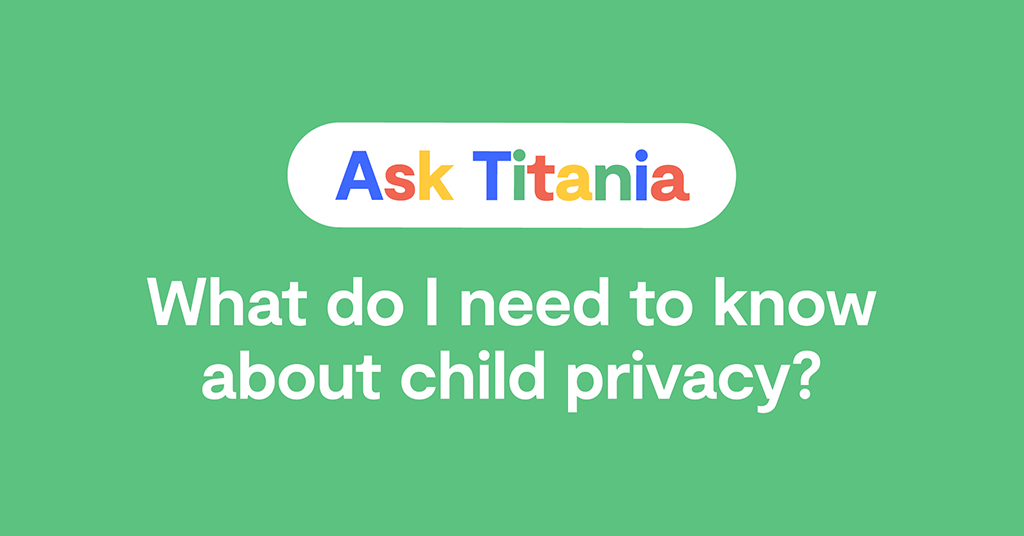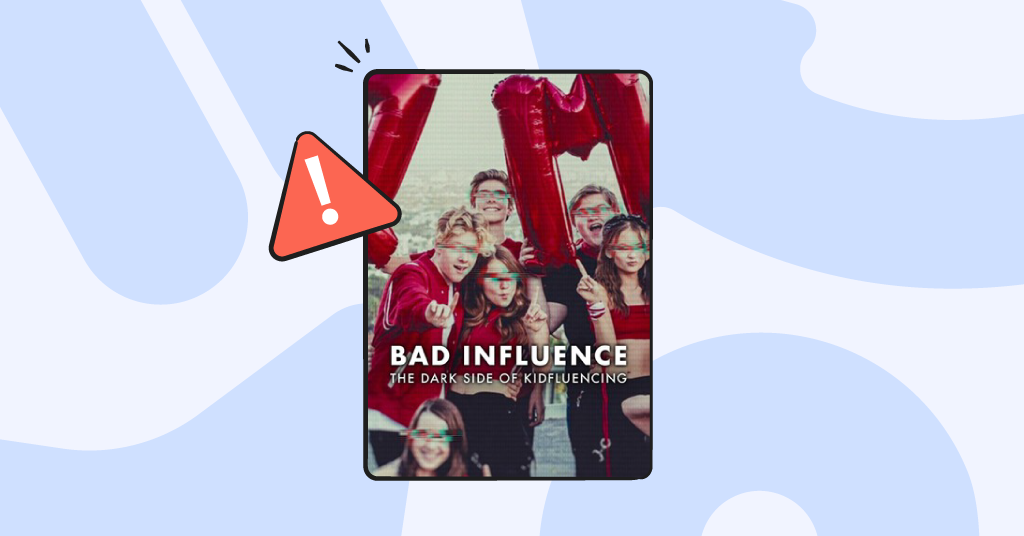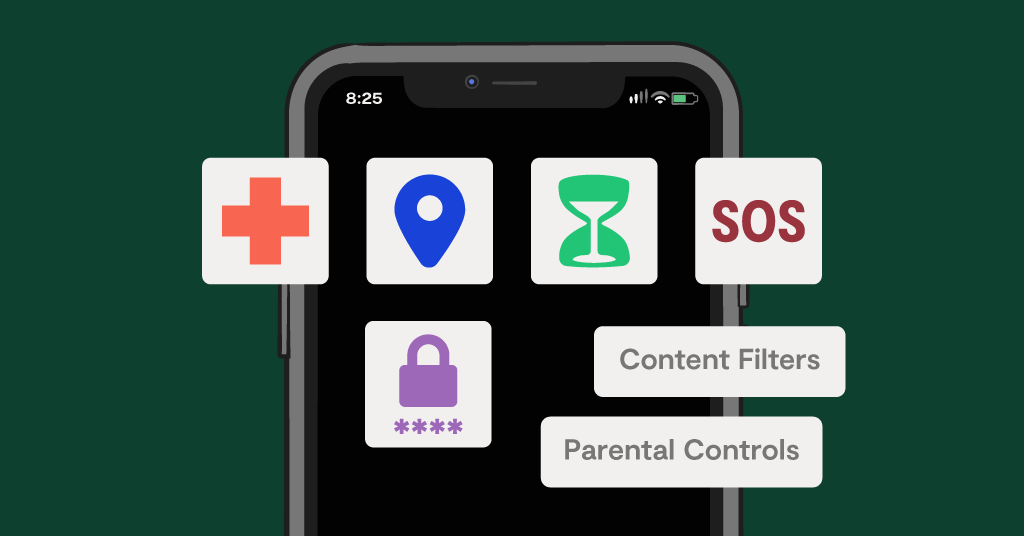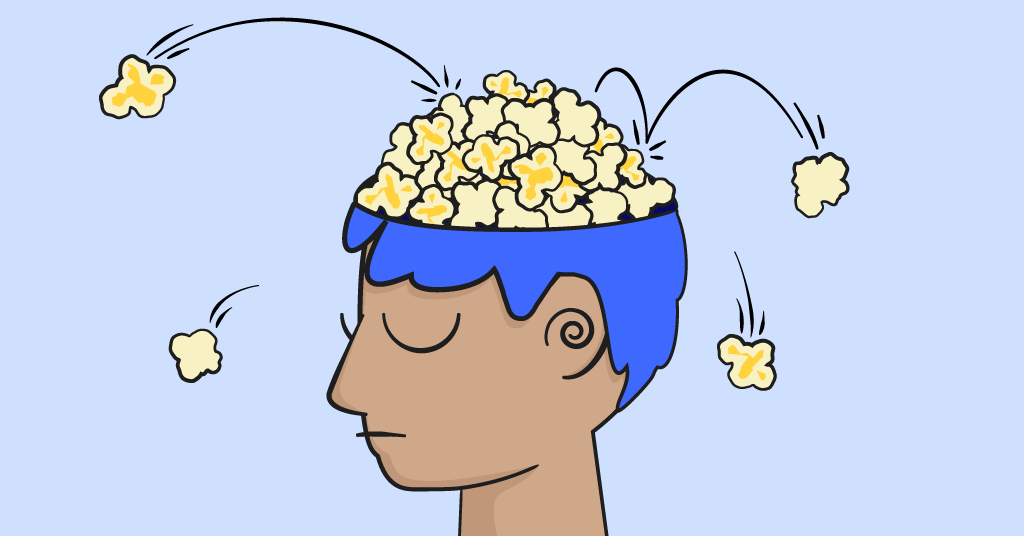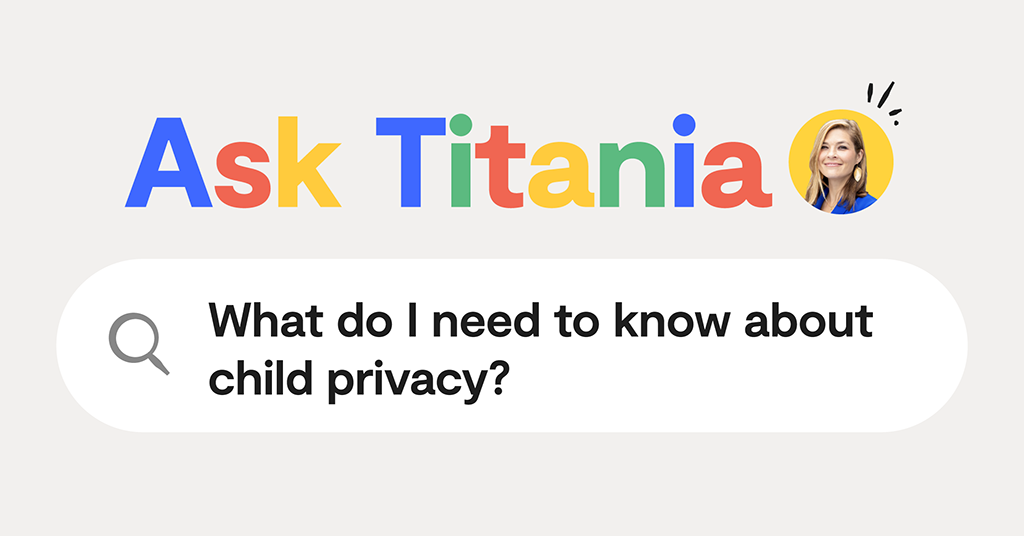
Dear Titania,
Lately I’ve been seeing a lot of pushback online about posting photos of kids on social media — even on private accounts! But at the same time, there are tons of parenting Instagram accounts out there that keep their young ones front and center. What’s the difference? And what should I be doing? I want to help keep my kids safe, but what harm could some pictures on the playground prove?
Signed,
Perplexed About Posting
Dear Perplexed About Posting,
This is a very timely question! It seems like many parents are starting to realize just how problematic all of the online sharing they’ve done really is. This is partly a result of time: the internet and smartphones — and all of the ways they’ve changed our daily lives — have only been super popular since about 2007.
It was a learn-as-you-go approach, and at first, we were so, so excited to be able to instantly share photos with family and friends. It was only natural that documenting their entire lives would follow.
But now, as that crop of kids born around 2007 is about to enter adulthood, we’ve been charged with rethinking some things.
To Begin, Imagine Your Child at Age 21
They’re finishing up college and applying for jobs — you’re so proud! But when their potential boss Googles them (as will inevitably happen), they suddenly gain access to pictures and stories of your child’s entire life. They see all of the photos and videos you’ve taken and posted on Facebook, Instagram, TikTok, WordPress, Twitter, Threads — you name it, and it’s there for the perusing.
Granted, not every parent posts on every platform, and not every child has a Google-able name (the John Smiths of the world are hard to find). But imagine having your entire childhood available for the world to see with just a few taps on the keyboard, and all without your permission. After all, the first photo of a child that ends up online is usually an ultrasound, before they’ve even been born.
We talk a lot about a child’s digital footprint — how nudes and disappearing messages can stay forever online — but not about how a parent’s digital footprint can affect kids. Before your child can consent to photos and videos of them being online (before they can even talk!), you’re making the decision for them. Some of these photos may be embarrassing, weird, or inappropriate. Some may be perfectly fine or innocent, as well. But they’re all there without an okay from your kid.
A Brief History of Sharenting
Before the internet, we shared photos of kids. Physically. We mailed them to grandparents, sent Sears photo session postcards during the holidays, and popped hastily taken Polaroids in envelopes.
Then, the internet came. You could now email digital photos! Facebook next opened a world of possibilities with photo albums. Instagram followed suit. Around this same time, blogging really took off, and the concept of “mom bloggers” emerged — moms (and dads) who would painstakingly document the daily life of raising kids, messy hair, tantrums, and all. The most popular bloggers got sponsors, enabling them to make money from ads.
Eventually, the concept of mom blogging transformed into the parenting influencer. Instead of a blog, these parents shared social media posts and videos of their kids and their family’s life. When they get enough followers, brands pay them to promote their products — anything from trendy snacks to hair care tools. And full disclosure: At Bark, we’ve worked with influencers to help raise awareness about our offerings and impact.
It’s More Than Privacy, It’s Safety
At the end of the day, there’s more to this than just a child’s digital identity. It’s how closely linked privacy is to safety. Here are just a few ways they’re intertwined.
CSAM
CSAM stands for child sexual abuse material. Any photo of a child that’s freely available online has the potential to be downloaded and shared online with potential nefarious purposes. These images may be photoshopped into sexual poses or shared on the dark web among pedophiles.
Potential stalking
When you post photos of your child day in and day out, it can become easy to learn where your family spends their time. This means predators could triangulate the path you take home from school, for example. And those back-to-school photos with chalkboards detailing your kid’s grade, age, teacher, school, and interests? It’s like broadcasting to the entire world the most intimate details of your child’s life.
Identity theft
It may not seem like it, but another potential danger is someone online stealing your child’s identity. And while a 6-year-old can’t apply for a credit card, a hacker using your child’s name, address, and location may be able to!
Bullying
Everything that lives online publically can be found by people — including your child’s peers. If you’re posting a ton of photos of them on your personal Instagram account, for example, this could open them up to bullying. Is it fair? Absolutely not. But growing up is hard, and it’s even harder in the digital age.
What You Can Do
There’s nothing wrong with wanting to share and document your child’s life — you just need to be mindful about everything. The first (and easiest) thing to do is to lock down all of your social media profiles. Make them private. And if you have a lot of followers that you don’t know, consider if you really need them. Or, at the very least, you could make a close friends list so only your besties see photos of your kids.
Most parents aren’t influencers, and we’re all out here just trying to raise our kids the best way we know how, all while trying to preserve some legacy via photos for our families. It’s actually a gift, being able to do this. Before about 1960 or so, video of a child’s first steps was only a dream, something that lived only in memory.
As you go forward, just try to remember that this is all relatively new in the grand scheme of things, and try to picture your child as an adult and what they’d want others to learn about them from a quick Google search.
Read more
Bark helps families manage and protect their children’s digital lives.


